Collaboration Is The Key Which Unlocks Learning
I’m a firm believer in collaboration and have been using it as a tool in my classroom for several years. When used effectively, it provides an exciting, high impact start to a lesson which enables all children to take responsibility for their own actions towards shared goals, engage them in meaningful learning experiences that deepen previous learning, can introduce new ideas and concepts and is valuable in being able to assess children when they are deep in conversation with their peers. This approach has transformed my teaching.
Background
It was back in 2012 when I began a course called ‘Learning to Learn’ which was delivered over several months by Peter Greenhalgh of ‘Mind Friendly Learning‘ followed by a presentation to colleagues from local schools and our Head Teachers. As part of the course, we had to undertake an action research project in school. I decided to begin by focusing upon cooperative learning within mathematics in order to provide opportunities for children to approach problem solving (as it was back in 2012) systematically and with confidence whilst practicing and refining speaking and listening skills allowing my EAL children to be submerged in a language rich environment, and to try and promote children taking control of their own learning.
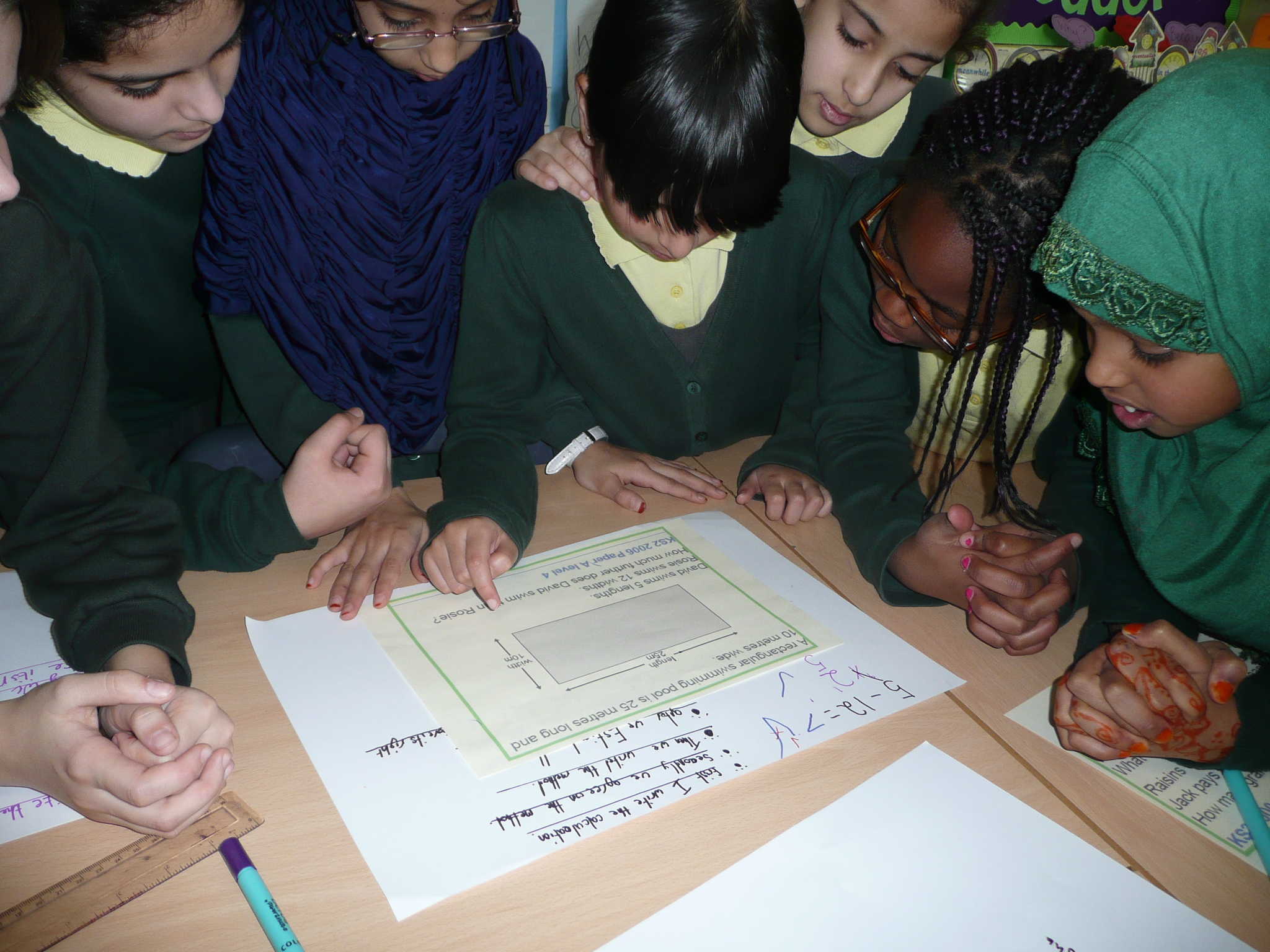
Collaborating on an old SATS question (2012)
I quickly realised that this ‘Challenger Starter’ collaborative approach could be used across the curriculum. As a result, my children embraced opportunities to practice and refine collaborative approaches towards their learning in a variety of different contexts.
What I found
• My children became more engaged in meaningful learning.
• They led their own learning with more confidence and independence.
• Collaboration challenged children of all abilities within my class.
• Children became more creative with the direction of their own learning.
• They developed confidence in speaking within a non-threatening, small group situation and listen well.
I also tracked three children throughout the project. Information is provided below.
Child profiles BEFORE collaborative learning strategies were used (2012)
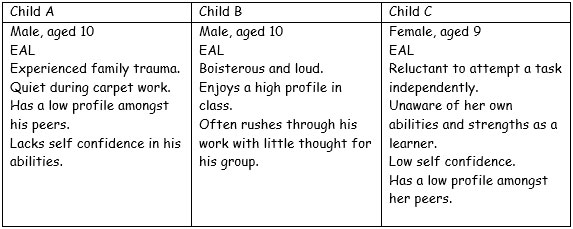
Child profiles AFTER collaborative learning strategies were used (2013)
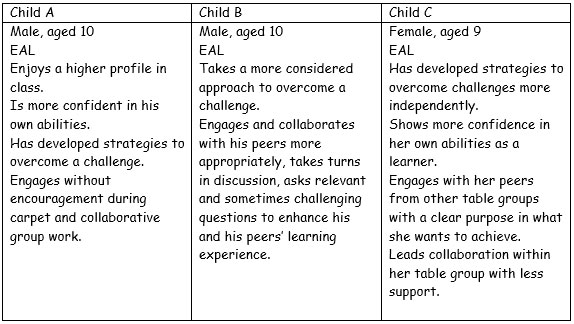
The impact on Maths Results (May 2013)
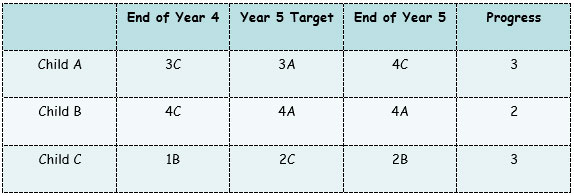
The impact on Maths Teaching, Learning and Deepening (From September 2015)
The ‘Deep-Dive Challenge’ is what I’ve called the collaborative element at the beginning of each Maths lesson. Whilst the outcomes mentioned above earlier still present themselves over time, opportunities have also opened themselves up for me too to engage with my children in new and exciting ways.
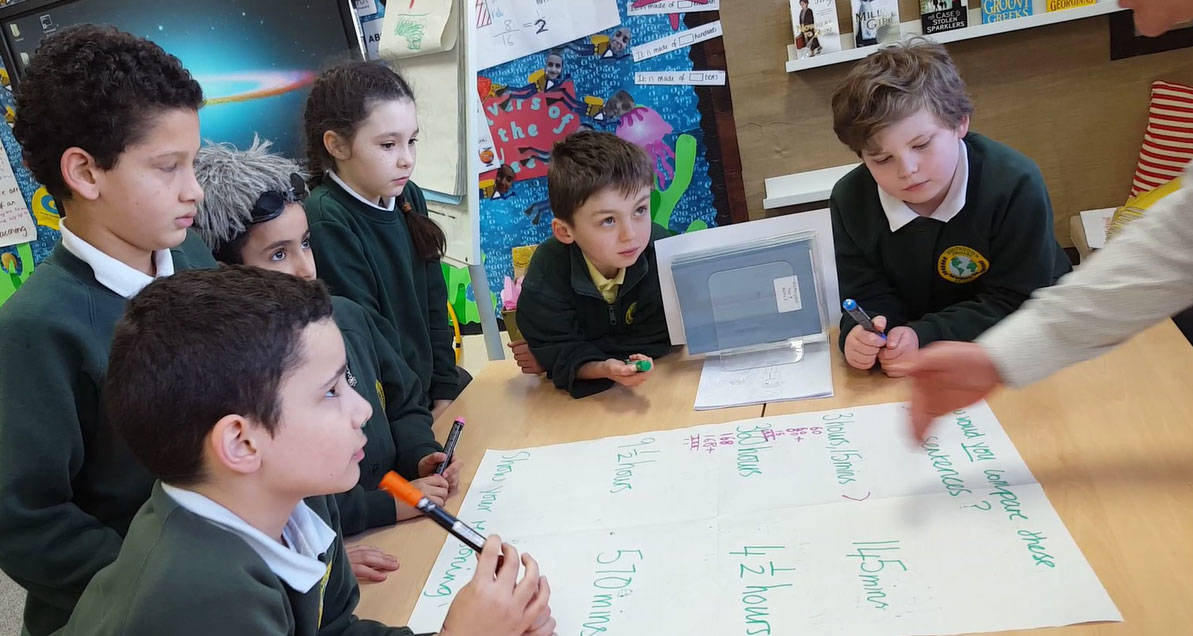
Different ‘Deep-Dive Challenges’
I have provided the children with daily collaborative challenges that have been taken from the NCETM mastery documents, standard word problems, various True or False questions etc and most recently I have felt that the children have the skills to apply what they know to a simple picture without any guidance from myself. The children have led their own learning journey and I have been able to listen and observe carefully, providing feedback and differentiated questions ‘On The Fly’.
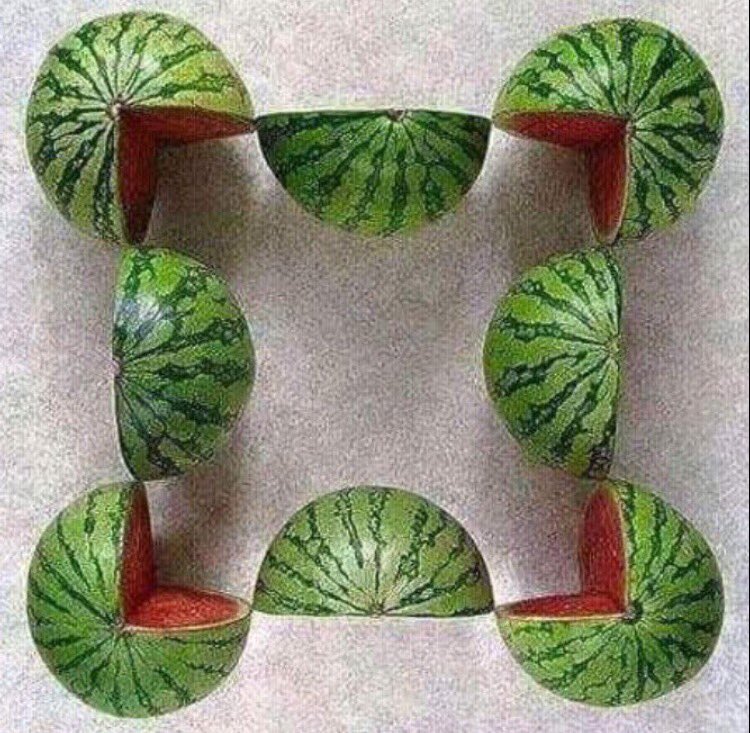
Melons: The children found their own way by thinking creatively!
Assessment ‘On The Fly’
Simply standing back and listening to conversations (armed with a marker pen), their approaches to the challenge presented to them provides opportunities to intervene and support when necessary and also allows me to question and deepen their knowledge and understanding further allowing them to use and apply existing and newly acquired skills.
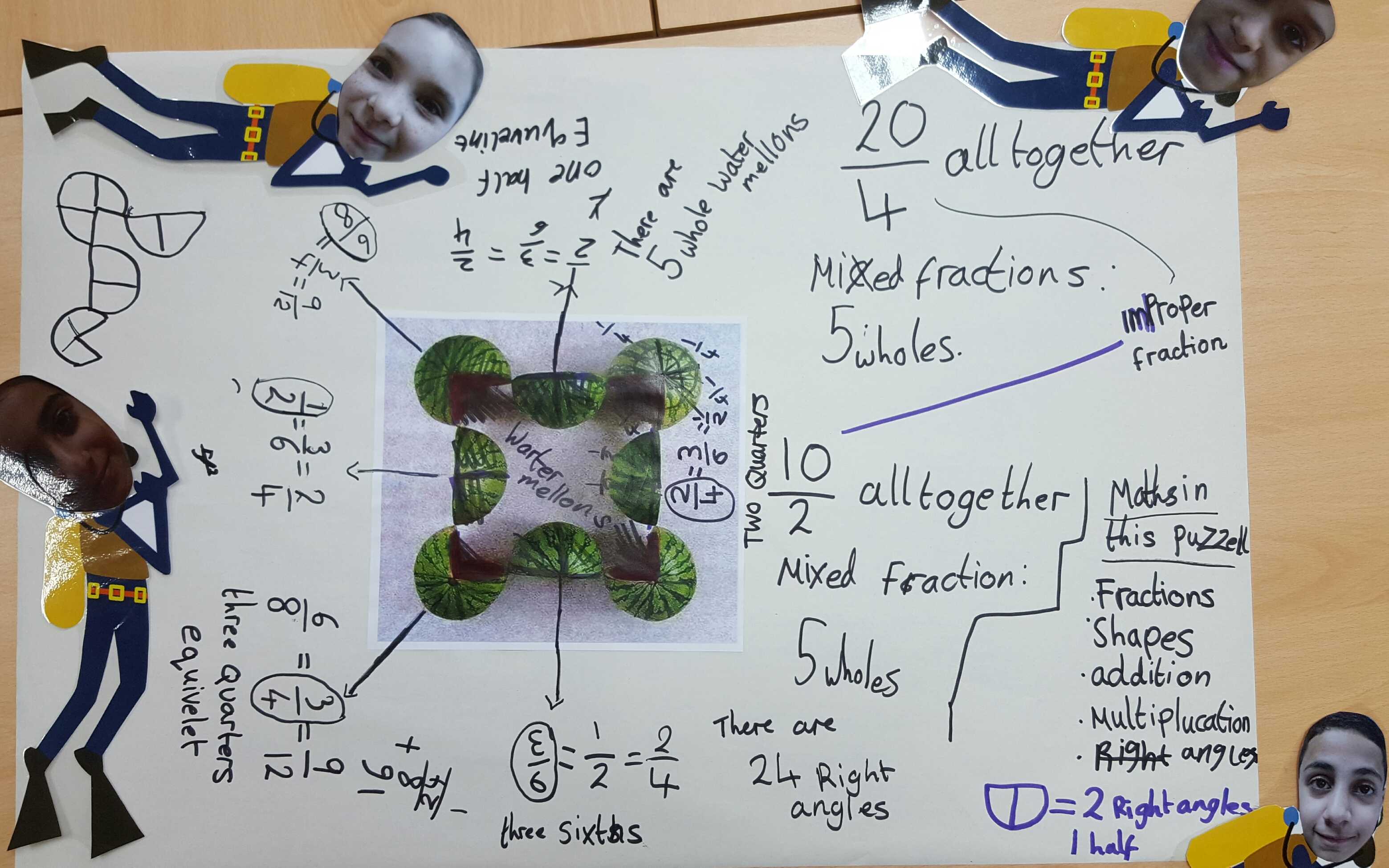
Discovering opportunities for maths within this picture was an exciting prospect for the children!
Reasoning and Fluency
The aims of the National curriculum for maths state that children should become fluent in the fundamentals of mathematics, including through varied and frequent practice with increasingly complex problems over time, so that pupils develop conceptual understanding and the ability to recall and apply knowledge rapidly and accurately.
They should be able to reason mathematically by following a line of enquiry, conjecturing relationships and generalisations, and developing an argument, justification or proof using mathematical language.
The collaborative, ‘Deep-Dive Challenge’ at the start of each lesson provides many opportunities for the children to reason mathematically and become fluent through frequent and varied practice with more complex and varied problems which can only be achieved over time.
The earlier children have opportunities to collaborate, the better for all of us on our eternal quest to close gaps and accelerate progress.
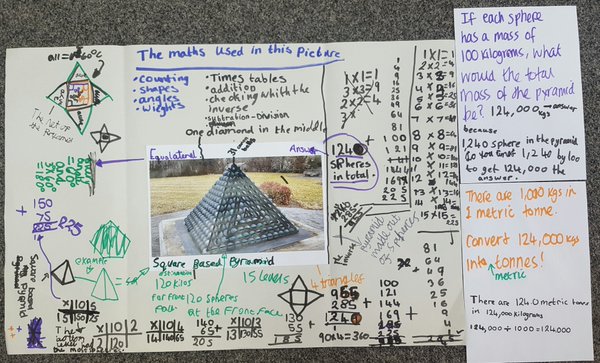
Further Reading
With Swimming in Maths, your children will never be out of their depth
A whole school, child friendly approach towards deepening knowledge & understanding
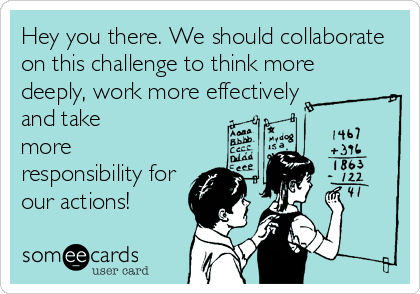
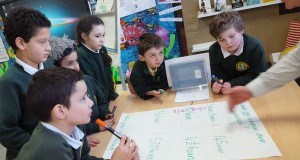
3 thoughts on “Collaboration – The Key Which Unlocks Learning”